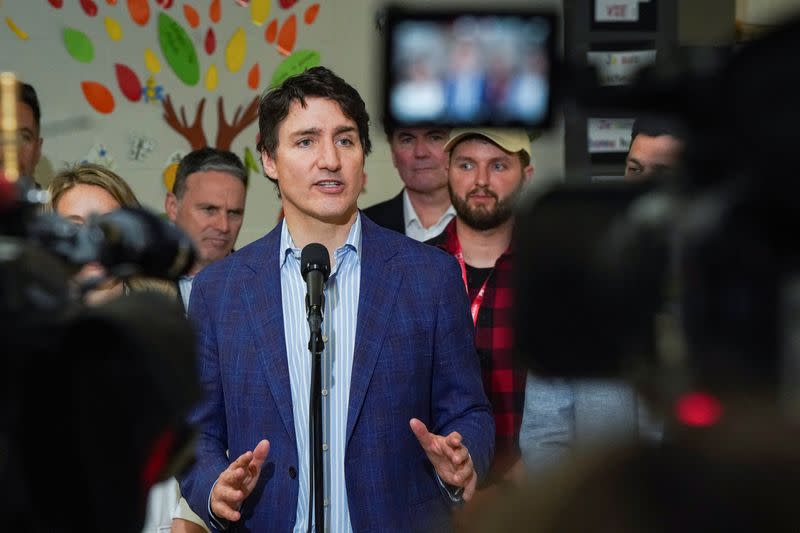Canada agrees to probe of lawmakers who allegedly worked for other nations

By David Ljunggren
OTTAWA (Reuters) -The Canadian government, under pressure to reveal the names of legislators who allegedly acted as agents for other nations, on Monday bowed to opposition demands to refer the matter to a special inquiry.
Prime Minister Justin Trudeau has been on the defensive since a committee of parliamentarians that focuses on security matters last week said some elected officials had been "witting or semi-witting" participants in foreign interference operations, including divulging secrets to other countries.
The Liberal government says naming legislators would break the law, adding it would be up to police to investigate.
The committee, which was citing sensitive information from Canada's secret services, said it could not identify the legislators or the political party to which they belonged.
Opposition legislators on Monday started debating a motion that proposes the matter be turned over to an independent inquiry that is already looking into foreign interference.
Public Safety Minister Dominic LeBlanc said he agreed with the proposal, given that the inquiry already had access to the documents cited by the committee of legislators.
"We think that's a responsible way to proceed, not simply standing up and illegally announcing a list of names," he told the House of Commons elected lower chamber. He did not commit to naming names.
The official opposition Conservatives, who polls show are set for an easy win in a national election that must be held by late October 2025, accuse Trudeau of taking a lax approach to security.
"Certain members of this House acted in the best interest of hostile foreign regimes interfering in Canada's democracy. This is a disgusting betrayal of Canadians who elected us," party legislator Jasraj Singh Hallan told the House on Monday.
In their report last week, the committee of parliamentarians said India and China were the main foreign threats to Canada's democratic institutions.
The independent inquiry, in an interim report, last month announced it had found evidence of foreign interference in Canada's last two federal elections but said the results of the votes were not affected and the electoral system was robust.
Canada's main spy agency last month said persistent Chinese election meddling had the potential to undermine Canadian democracy. Beijing routinely denies accusations of interference.
(Reporting by David LjunggrenEditing by Bill Berkrot and Rod Nickel)


